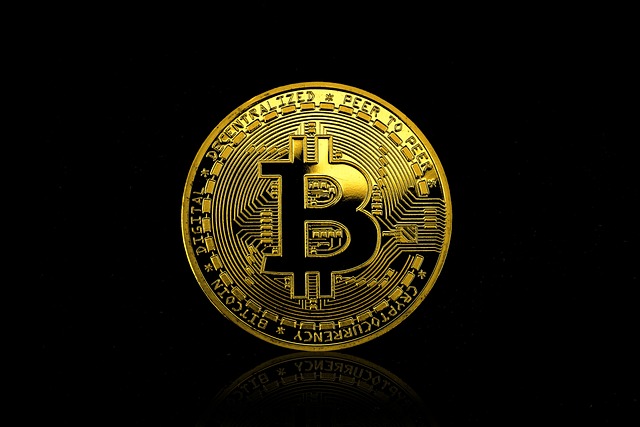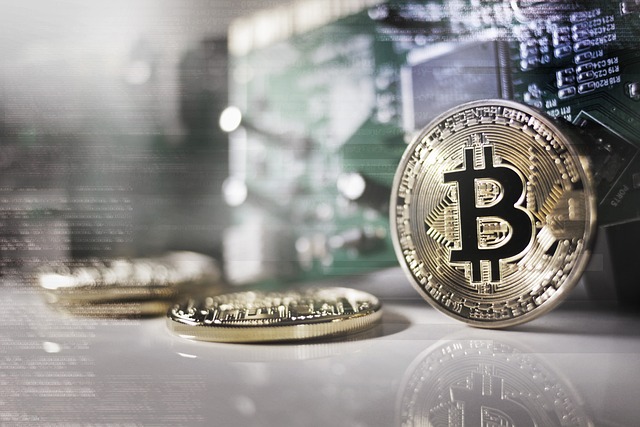Decentralized Finance Advantages vs. Traditional Banking
Decentralized Finance Advantages vs. Traditional Banking

Understanding the Concept of Decentralized Finance
Decentralized finance, often referred to as DeFi, is a concept that has been gaining momentum in recent years. It is a system that aims to create a more open and accessible financial infrastructure, free from the confines of traditional centralized institutions. Unlike traditional finance, which relies on intermediaries such as banks or government bodies, DeFi operates on a decentralized network, typically built on blockchain technology.
The key principle behind decentralized finance is the removal of intermediaries in financial transactions. This eliminates the need for banks or other centralized entities to facilitate transactions such as lending, borrowing, or investing. Instead, smart contracts are used to automate these processes, ensuring greater efficiency and reducing the risk of human error. By removing intermediaries, DeFi promotes peer-to-peer transactions, creating a more inclusive and accessible financial ecosystem for individuals from all walks of life.
Accessibility and Inclusion for All
The emergence of decentralized finance has brought about a significant shift towards accessibility and inclusion for all individuals. Unlike traditional financial systems that often exclude those without access to traditional banking services, decentralized finance opens up new possibilities for anyone with an internet connection and a smartphone. This allows individuals from all walks of life, regardless of their socioeconomic status or geographic location, to participate in the financial ecosystem.
One of the key advantages of decentralized finance is its ability to empower individuals who have been historically excluded from traditional banking systems. By eliminating barriers such as high transaction fees, minimum deposit requirements, and credit checks, decentralized finance provides a level playing field for all participants. This not only allows individuals to access basic financial services, such as savings accounts and loans, but also enables them to engage in more complex financial activities like investing and trading. With decentralized finance, financial opportunities are no longer confined to a select few but are now available to anyone willing to explore this innovative and inclusive financial landscape.
Empowering Individuals with Financial Freedom
Decentralized finance (DeFi) has emerged as a powerful tool that can potentially empower individuals with financial freedom.

Moreover, DeFi grants individuals the ability to access financial services regardless of their location or status. Traditional banking systems often exclude marginalized communities due to various reasons such as limited access to formal identification documents or geographical limitations. However, with DeFi, all that is needed is an internet connection, enabling anyone with a digital device to engage in financial activities. This inclusivity ensures that individuals who were previously excluded have a fair chance to participate and benefit from the financial system. By democratizing access to financial services, DeFi is paving the way towards a more equitable and inclusive financial landscape.
• DeFi allows individuals to transact directly with one another, removing the need for intermediaries.
• Individuals have greater control over their financial decisions without the constraints of traditional financial services.
• Traditional banking systems often exclude marginalized communities, but DeFi enables access regardless of location or status.
• All that is needed to engage in financial activities through DeFi is an internet connection and a digital device.
• Inclusivity ensures that previously excluded individuals have a fair chance to participate and benefit from the financial system.
• DeFi is democratizing access to financial services and paving the way towards a more equitable and inclusive financial landscape.
Enhanced Privacy and Security Measures
With the rising incidents of data breaches and online fraud, privacy and security have become paramount concerns in all aspects of our lives, including our financial transactions. The emergence of decentralized finance (DeFi) provides a solution to these concerns by offering enhanced privacy and security measures.
One of the key features of DeFi is the use of blockchain technology, which ensures that transactions are secure and transparent.

Cost-Effectiveness and Fee Reductions
One of the key benefits of decentralized finance (DeFi) is its cost-effectiveness and fee reductions. Traditional financial systems often come with hefty transaction fees and other hidden charges that can significantly eat into individuals’ savings and investments. However, with DeFi, these unnecessary costs can be minimized or even eliminated altogether.
By leveraging blockchain technology, DeFi platforms are able to eliminate middlemen and intermediaries, resulting in reduced fees. This peer-to-peer nature of DeFi allows individuals to directly interact with the system, cutting out the need for traditional financial institutions and their associated fees. Moreover, with DeFi, there are no geographical limitations, meaning that anyone with an internet connection can access and benefit from these cost-effective financial services.
Furthermore, DeFi offers users the opportunity to save on various administrative costs typically associated with traditional finance. For example, the automated nature of smart contracts eliminates the need for tedious paperwork and manual verification processes, reducing administrative costs significantly. Additionally, DeFi eliminates the need for physical locations and infrastructure, further reducing overhead costs. These cost savings can then be passed on to users, enabling them to enjoy greater financial freedom and control over their funds.
Efficient and Swift Transactions
In the fast-paced world we live in today, speed and efficiency are key factors in any transaction. When it comes to financial operations, the ability to conduct swift transactions is of utmost importance. With the advent of decentralized finance (DeFi), the process of conducting transactions has become more efficient than ever before.
Gone are the days when you had to wait for several days for your money to transfer from one account to another. With DeFi, transactions are completed within minutes, if not seconds. This not only saves valuable time but also ensures that your money reaches its intended destination in a timely manner. Whether you’re sending funds to a family member in another country or making a payment for a purchase, the efficiency and swiftness of decentralized finance make it a game-changer in the financial world.
Transparency and Trust in Financial Operations
Blockchain technology has brought about revolutionary changes in the financial industry, particularly in terms of transparency and trust. In traditional financial operations, the lack of transparency often leads to skepticism and doubt among individuals.

In addition to transparency, trust is also built through the decentralization of financial operations. Unlike centralized systems where a single authority has control over financial transactions, DeFi operates on a peer-to-peer network wherein no single entity holds all the power. This decentralized nature ensures that no single entity can manipulate or exploit the financial system for personal gain. Instead, decisions and operations are governed by consensus, wherein multiple participants validate and approve each transaction. This system of checks and balances enforces trust among users, as it eliminates the need for intermediaries and reduces the risk of fraud or corruption. The transparency and trust established in DeFi not only promote a more equitable financial system but also empower individuals to take control of their own finances.
Potential for Higher Returns and Yield Farming
The potential for higher returns and yield farming has become an attractive aspect of decentralized finance (DeFi). In traditional financial systems, individuals often face limited options when it comes to investment opportunities. However, with DeFi, individuals have access to a wide range of decentralized applications (dApps) that offer various opportunities to earn passive income.
Yield farming, for instance, allows individuals to lend their assets or provide liquidity to decentralized exchanges (DEXs) and earn additional tokens as rewards. This process involves locking up assets in smart contracts, which automatically execute predefined actions and distribute rewards based on specified conditions. The ability to earn higher returns through yield farming has captured the attention of many individuals looking to maximize their income potential in the rapidly growing DeFi space.
Innovation and Flexibility in Financial Services
Innovation and flexibility are two key factors that have transformed the landscape of financial services. With the advent of technology, traditional financial institutions are no longer the only players in the game. Fintech startups and decentralized finance platforms have emerged, offering innovative solutions that cater to the changing needs of individuals and businesses.
One area where innovation and flexibility shine is in the realm of lending and borrowing. Traditional banks often have strict lending criteria, making it difficult for certain individuals to access funds. However, with the rise of peer-to-peer lending platforms and decentralized finance protocols, borrowers can now access loans with greater ease and flexibility. Whether it’s a small business owner needing working capital or an individual looking for a personal loan, these platforms offer a wide range of lending options, often with more favorable terms than traditional institutions.
Additionally, innovation and flexibility in financial services have also revolutionized investment opportunities. Traditional investment avenues, such as stocks and bonds, are no longer the only options available. Individuals can now explore decentralized finance platforms that enable them to participate in yield farming, liquidity provision, and other innovative investment strategies. These platforms often offer higher potential returns, as well as the ability to invest in emerging asset classes like cryptocurrencies. With innovation and flexibility at the forefront, individuals have greater control over their investment portfolios, allowing them to tailor their financial strategies according to their needs and risk tolerance.
Innovation and flexibility in financial services have opened up a world of possibilities, making financial empowerment more accessible to individuals from all walks of life. With continued advancements in technology and the proliferation of decentralized finance, the possibilities for innovation and flexibility in the financial industry are boundless.
Overcoming Geographical Limitations
In the digital age, geographical limitations are becoming less of a barrier when it comes to accessing financial services. In the traditional banking system, individuals may face hurdles such as the need to physically visit a branch or the inability to open an account due to residency or nationality constraints. However, with the rise of decentralized finance (DeFi) and its borderless nature, these limitations are being overcome.
By utilizing blockchain technology, DeFi allows for financial services to be accessible to anyone with an internet connection, regardless of their location. This means that individuals living in remote areas or countries with limited banking infrastructure can now participate in a wide range of financial activities, such as earning interest on their assets, accessing loans, or even trading various digital assets. The removal of geographical limitations opens up new opportunities for individuals around the world, empowering them to take control of their financial futures.
What is decentralized finance?
Decentralized finance, also known as DeFi, is a concept where financial transactions and services are conducted on a decentralized network, such as blockchain, rather than through traditional centralized institutions like banks.
How does decentralized finance overcome geographical limitations?
Decentralized finance provides accessibility and inclusion for all individuals, regardless of their geographical location. It eliminates the need for physical infrastructure and allows people to access financial services using only an internet connection.
How does decentralized finance empower individuals with financial freedom?
By removing the need for intermediaries, decentralized finance enables individuals to have full control over their finances. They can transact, invest, and manage their funds without relying on banks or other centralized institutions.
What privacy and security measures are implemented in decentralized finance?
Decentralized finance platforms use advanced encryption techniques and smart contracts to enhance privacy and security. Transactions are transparently recorded on the blockchain, making it difficult for fraud or manipulation to occur.
Does decentralized finance reduce costs and fees?
Yes, decentralized finance reduces costs and fees associated with traditional financial services. By eliminating intermediaries, transactions become more cost-effective, allowing individuals to save money on fees.
Are transactions in decentralized finance efficient and swift?
Absolutely! Transactions in decentralized finance are processed quickly and efficiently. With the use of blockchain technology, transactions can be completed in a matter of minutes, regardless of the sender and receiver’s geographical location.
How does decentralized finance ensure transparency and trust in financial operations?
Decentralized finance platforms provide transparency by recording all transactions on the blockchain, making them publicly visible. This transparency builds trust among participants as transactions are verifiable and cannot be altered.
What is yield farming in decentralized finance?
Yield farming is a process where individuals can earn rewards or interest on their cryptocurrency holdings by providing liquidity to decentralized finance platforms. It offers the potential for higher returns compared to traditional savings accounts.
How does decentralized finance encourage innovation and flexibility in financial services?
Decentralized finance fosters innovation by allowing developers to build and deploy their financial applications on open-source platforms. This flexibility encourages the creation of new and unique financial services that can cater to specific needs.
Can decentralized finance overcome geographical limitations?
Yes, decentralized finance is designed to overcome geographical limitations. By operating on a decentralized network, it provides financial services to anyone with an internet connection, regardless of their location.
Todays Featured Product:
Buy, exchange and grow your crypto securely with a Ledger hardware wallet, combined with the Ledger Live app. It’s never been easier to keep your crypto safe and accessible. Buy direct from Ledger.com and get todays Special Offers Here.




